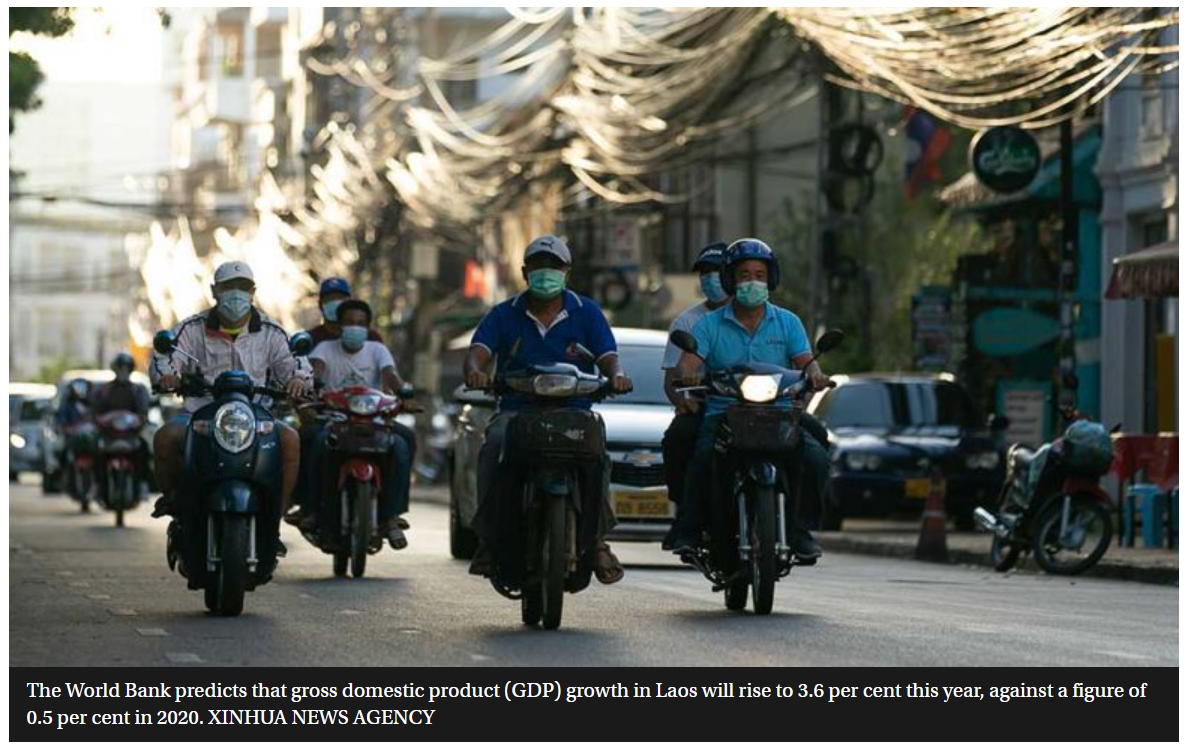Covid wave dents economic outlook for Laos: World Bank
The Lao economy is on course for moderately improved growth in 2021, despite an outbreak of Covid-19 denting the promising economic recovery made earlier in the year, according to the World Bank.
The Bank’s latest Economic Monitor for Laos – A Path to Recovery – predicts that gross domestic product (GDP) growth will rise to 3.6 per cent in 2021, against a figure of 0.5 per cent in 2020.
This forecast is down from the four per cent growth projected in March 2021, and depends on various assumptions, including economic recovery in neighbouring countries, accelerated vaccination rates, and mitigation of community outbreaks of the virus over the rest of the year.
Growth could yet fall further if the Covid outbreak worsens and strong lockdown measures persist, or if Laos again suffers repeated natural disasters such as flooding, drought, or outbreaks of livestock disease, the report said.
Agriculture and industry are driving much of the growth, with agricultural exports increasing, while electricity, mining and manufacturing exports have rebounded from the trade slowdown last year.
In tourism, hospitality, transport, and other services however, lockdowns and the continuing curbs on international travel mean that most firms are struggling, depriving the country of a major income source.
The newly-appointed World Bank country manager for Laos Alex Kremer said: “Laos is doing well to contain the coronavirus and get vaccinations out across the population.
“However, the risk of debt distress, a weak kip, and low government revenues continue to limit the government’s options for reviving the economy. Reforms that would boost private investment, tax payments, and trade would help in this matter.”
According to the report, the falling value of the kip is causing inflation to rise, which in turn has led to worries about access to food and basic goods. This problem is particularly pressing for poor people in towns and cities.
In a thematic section, “impacts of Covid-19 on businesses and households”, the report shows that employment dropped sharply in May this year, while over 30 per cent of family businesses have closed since the start of the pandemic.
Business surveys conducted by the World Bank indicate that monthly sales fell by 48 per cent in March to April 2021. Almost half of all firms have reported cash flow shortages, and more than a quarter of businesses expect to fall into debt over the next six months.
To ease the effects of the economic slowdown, the report recommends that Laos increases the momentum on business reforms and trade facilitation so that it can properly benefit from new infrastructure and trade agreements.
This can be achieved by streamlining current investment regulations and procedures, increasing the ease of doing business, lowering transport and logistics costs, and supporting improved product quality, especially for agricultural exports.
Expanding government support programmes for businesses, along with better promotion of these assistance schemes, would help companies stay afloat and provide vital income and revenue, while measures to help more Lao firms invest in digital technologies or new delivery methods could help companies turn crisis into opportunity, according to the report.
The Lao Economic Monitor is published twice yearly by the World Bank.
VIENTIANE TIMES/ASIA NEWS NETWORK


 English
English




